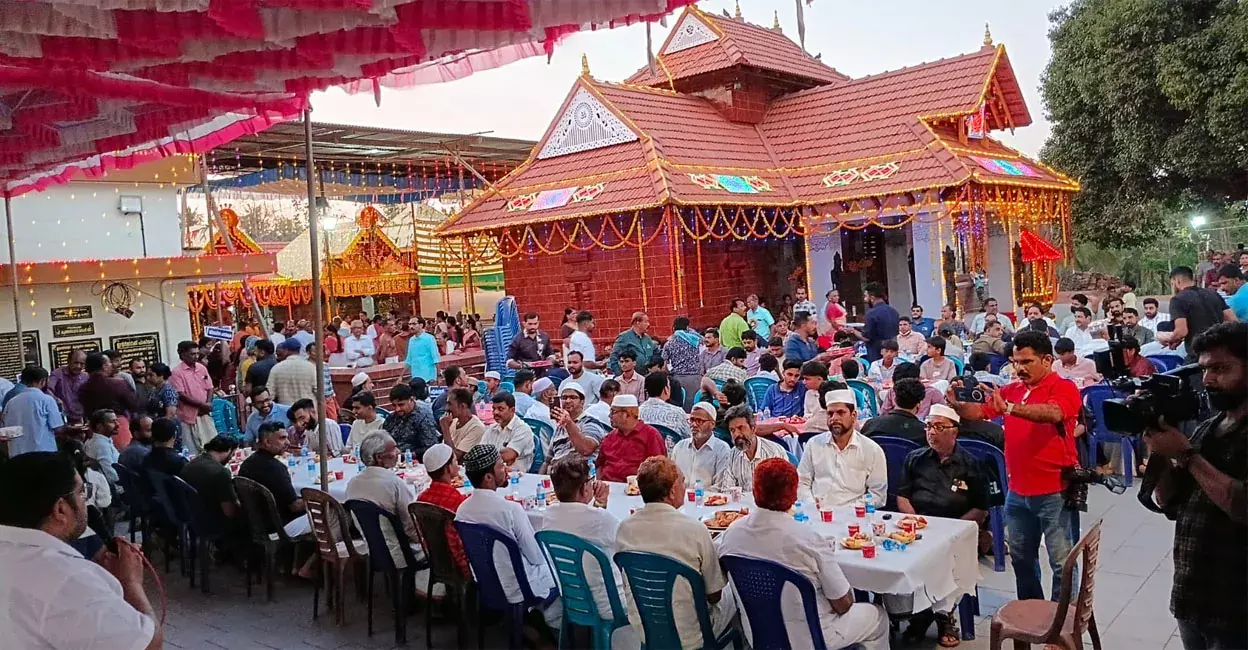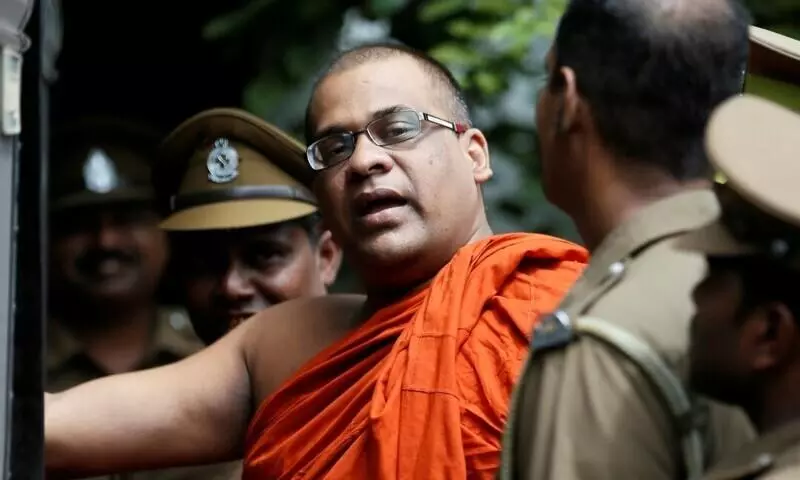
Sri Lankan Buddhist monk Gnanasara sentenced to nine months for insulting Islam
text_fieldsA hardline Sri Lankan monk, Galagodaatte Gnanasara, known for his close ties with ousted former president Gotabaya Rajapaksa, has been sentenced to nine months in prison for insulting Islam and inciting religious hatred.
The Colombo Magistrate's Court delivered the verdict on Thursday, convicting Gnanasara for remarks made during a 2016 media conference.
This sentencing marks a rare occurrence in Sri Lanka, where Buddhist monks are seldom convicted. It is the second time that Gnanasara has been jailed, following repeated accusations of hate crimes and anti-Muslim violence. His previous conviction in 2018 was for contempt of court and intimidating the wife of a political cartoonist, leading to a six-year sentence from which he served only nine months after receiving a presidential pardon from then-President Maithripala Sirisena.
The latest conviction comes after Gnanasara's arrest in December for derogatory remarks made against Islam. The court emphasized that the Constitution guarantees freedom of belief to all citizens, regardless of religion. Along with the prison sentence, Gnanasara was fined 1,500 Sri Lankan rupees, with an additional month of imprisonment stipulated for failure to pay the fine. He has since filed an appeal against the sentence.
Gnanasara's political affiliations have been significant, particularly his close relationship with Gotabaya Rajapaksa, who was forced to resign and flee the country amid mass protests over Sri Lanka's economic crisis in 2022. During Rajapaksa's presidency, Gnanasara was appointed head of a presidential task force on legal reforms aimed at safeguarding religious harmony, reflecting his influence in the administration.
Following Rajapaksa's ouster, Gnanasara faced similar charges related to hate speech against the Muslim minority, leading to another jail sentence last year. However, he was granted bail while appealing a four-year sentence.
Despite his convictions, his role in the political landscape and his leadership in a Sinhalese Buddhist nationalist group have kept him a prominent figure in Sri Lanka's socio-political context.























